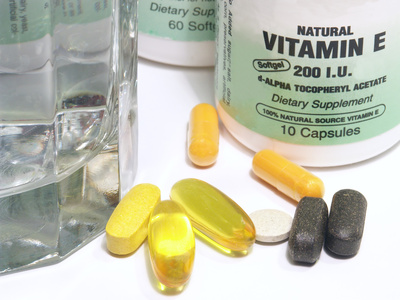
by Dan Sydow

Source: Pexel
Many people are content with a basic one-a-day type vitamin. Other people are believers in the idea that there are a whole host of supplements that a person could take to not only stay healthy, but to get healthier, improve their cognition, and even extend their life.
Among the thousands of available products you’ll find brain-enhancers like lion’s mane mushroom, anti-aging herbs such as rhodiola, and supplements to improve your immune system, like the herb astragalus.
One problem with supplements is that many of these individual products are expensive on their own. The bigger problem is that the more you study the health benefits of various supplements, the more supplements you want to take — and then the cost really goes up. It’s very easy for a person to find that the products they’re interested in taking will cost well over $100 each month.
With thousands of supplement options, how does a person narrow down the list to just a handful that won’t break the bank?
Most importantly, don’t pick a specific supplement that is thought to target a specific health issue or provide one specific health benefit. Instead, look for supplements that each provide multiple benefits.
Our hectic lifestyles and readily available fast foods have resulted in many people — in some cases the majority of people — being deficient in certain important nutrients. So it’s a good idea to work on practicing a healthy lifestyle and to include the below-listed nutrients in your must-have supplement list.
Finally, when there is more than one supplement that looks like a good candidate, compare prices. Two supplements might seem to provide the same benefits, but one may cost much more than the other. The price difference in such cases is often possible only because one supplement is the “newest, best thing” and the manufacturer is relying on that hype to charge a premium for that product.
Listed here are four supplements that match the above criteria while giving you the most health bang for your buck.
Fish Oil (Omega-3)
There are different types of fats, and your body is capable of making most of them. But it can’t make a type of fat called omega-3 fat (also called omega-3 fatty acids) — it needs to get this fat directly from foods you eat. While many people reflexively think of all fat as bad, that is definitely not the case. When it comes to fat, omega-3 is one of the “good guys.”
Omega-3 fats are an essential part of the membranes of cells — and healthy cells mean a healthy body. Omega-3 has been demonstrated to improve cognition (brain power), reduce cholesterol levels and inflammation, improve hormone balance, and even lower the risk of developing Alzheimer’s disease rheumatoid arthritis, and lupus.
To further illustrate how some fats can be good, omega-3 fats can even contribute to weight loss. Omega-3 better enables your body to burn stored fat for energy rather than just using glucose from carbohydrates for this task.
While omega-3 fats provide a host of health benefits, they’re probably best known for what they can do for your heart — they help to prevent the onset of coronary heart disease and stroke.
By far the foods with the highest levels of omega-3 are fatty fish such as salmon and herring — but few people eat enough of this seafood consistently to supply adequate levels of the fat.
The best source of omega-3 is fatty fish, so omega-3 supplements are created from fish oil. At about $9 for a 3-month supply of omega-3 softgel capsules, you’ll be paying just $3 a month for what may nutritionists describe as one of the best supplements a person can take. When we talk about finding a low-cost supplement that offers several health benefits, omega-3 fatty acids in the form of fish oil may be the best example.
Magnesium
When people talk about nutritional supplements, magnesium is often left out of the conversation. Which is a shame, considering it’s both extremely important to the human body and a nutrient that about half of all Americans don’t get enough of.
Magnesium is a mineral that plays a role in literally hundreds of processes in the human body. If you suffer from PMS, migraines, nausea, or muscle cramps, a shortage of magnesium in your diet could be the cause.
Magnesium is especially important to the nervous system, so proper levels of this mineral are necessary for sound sleep and stress management. Production of serotonin, the chief hormone that elevates mood, requires magnesium. If you suffer from depression, and aren’t excited about trying prescription anti-depressants, you should try a magnesium supplement first.
Magnesium also plays a factor in regulating blood pressure, blood sugar levels, and bone and muscle health. If all that isn’t enough to convince you of the importance of this mineral, then consider this: magnesium is essential in creating DNA — the molecules that hold the instructions that make you, you!
You can readily find magnesium supplements bottled as a 3-month supply for as little as $4, making this roughly dollar-a-month supplement a no-brainer.
Vitamin B Complex
Everyone has heard of vitamin B, but not everyone knows that there are eight different B vitamins, and that they’re all important. Collectively the eight B vitamins support so many of the body’s processes that they can be considered the building blocks of health. B vitamins contribute to energy levels, cell health, sound brain function, healthy skin, cardiovascular health, proper digestion, and much more.
Vitamin B1 assists in converting glucose to energy. Vitamin B2 plays an important role in producing energy, and contributes to good skin and vision. Vitamin B3 is important in converting both fat and carbohydrates into energy, and supports the digestive and nervous systems. And on and on. The health benefits the B vitamins supply are so numerous that they are worthy of one long article dedicated just to that topic.
The B vitamins are water-soluble. That means they don’t get stored in the body’s fat, and after a short time any excess of the vitamins gets excreted in urine. The bottom line is that you can’t “stock up” on these vitamins — you need to get a sufficient amount daily. Which is all the more reason to make sure a B-complex vitamin is included in your daily supplements.
A 2-month supply of vitamin B-complex capsules can be found for around $5. That means for just two and half bucks a month you’ll be assured of getting sufficient amounts of all eight B vitamins: thiamine (B1), riboflavin (B2), niacin (B3), pantothenic acid (B5), pryidoxine (B6), biotin (B7), folic acid (B9), and cobalamin (B12).
Vitamin D
It’s well-known that vitamin D is good for building strong bones. What’s less commonly understood is that this vitamin provides many other health benefits.
Vitamin D assists your body in absorbing proper levels of phosphate and calcium — that’s its connection to bone health. Vitamin D has also been associated with fighting several cancers, including prostate, colon, breast and lung cancers. Adequate levels of this vitamin reduces the risk of diabetes, depression and other mood disorders, and musculoskeletal fractures and injuries.
Vitamin D plays a role in minimizing cardiovascular disease. A 20 year Johns Hopkins study of over 10,000 adults demonstrated a link between sufficient levels of vitamin D and reduced risk of both heart attack and stroke.
There are very few good dietary sources of vitamin D. The best way to get this vitamin is from sunlight, as human skin exposed to the sun actually creates large amounts of vitamin D. Due to a lack of foods rich in vitamin D, and the prevalent use of sunscreen, most Americans are deficient in this vitamin. Fortunately for as little as $3 you can buy a 3-month supply of vitamin D softgels.
Conclusion
The United States nutritional supplements industry is big business, with billions of dollars being spent yearly. With thousands of products to choose from, and with many manufacturers charging premium prices for the supplements getting the most buzz, it’s easy for people to fall into the trap of feeling they should be spending big bucks to stay, or get, healthy. It doesn’t have to be that way. There are several well-researched, inexpensive supplements that each provide multiple health benefits, allowing anyone to stay on the path to wellness without breaking the bank.
(Dan Sydow is a health and wellness enthusiast from Wisconsin. Dan is a graduate of the Milwaukee School of Engineering, a published author, and writes for the health website Brighter Health.)




